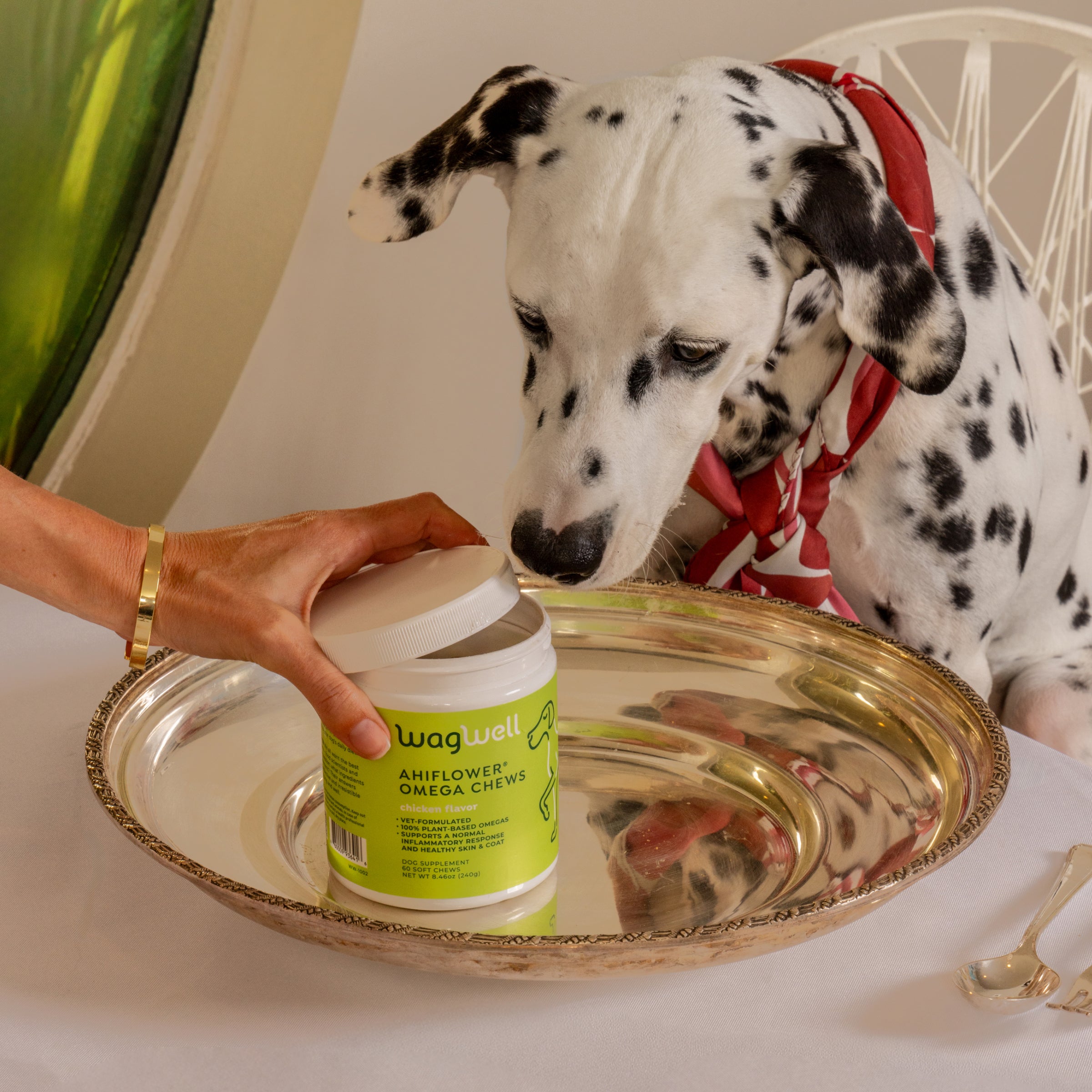Allergy season can feel like a triannial event where one minute you are scavenging for a tissue to blow your nose and the other minute you are rubbing your itchy eyes for a moment of relief. Seasonal allergies, however, are not specific to just humans but are also very common among dogs of all breeds. In fact, allergies are one of the leading causes of veterinary visits aside from gastrointestinal issues.
For humans, typical symptoms include watery eyes, runny nose, and sneezing and in some cases respiratory issues. However, in dogs, allergies rarely have respiratory signs, but instead symptoms are visible through skin and ear conditions, such as red itchy skin, hair loss, or recurring skin or ear infections.
Every dog likes a good scratch from time to time, but when your pup is incessantly licking, biting, scratching, or chewing specific areas to the point they are hurting themselves the behavior becomes a symptom of an underlying issue. Desperate for relief, these excessive behaviors can lead to secondary infections that can cause even more discomfort or pain for your pup.
Causes of Your Dog’s Allergies
Pollen, mold, grass, fungi, and household dust mites are all normal environmental substances that can cause an abnormal immune response in your dog, resulting in inflammation of the skin or ear. Flea allergy is another common source of skin irritation, but staying on top of your flea prevention treatment as directed by your veterinarian can help prevent the risk of misdiagnosis.
Signs that Your Pup May Have Allergies
- Rubbing their body on the ground or against furniture
- Excessive licking
- Chewing or biting their paws incessantly
- Scratching at their feet, flanks, ears, or groin, causing patchy or inconsistent hair loss
- Reddening of the skin or rashes
- Dry, crusty, or oily skin depending on the dog
- Rubbing their face on the carpet
- Ear flaps may become red and hot as a result of wax-producing glands in the ear overreacting as a response to the allergy
Treatments for Your Dog’s Allergies
There are many options to help minimize the impact of environmental allergies on your dog but be wary of anyone that says there is a cure. As enticing as this may sound, allergies rarely can be cured. Identification of the allergy and intervention to keep the allergic response under control is your best bet in providing relief and comfort for your pup.
Immunotherapy Shots: These injections can be very effective to help suppress allergic flare-ups, particularly for dogs with severe allergies. This option also helps lower the risk of allergies worsening as your dog ages.
Medication: Some types of steroids can be prescribed by a veterinarian to alleviate inflammation and swelling, as well as dog-safe antihistamines to help lessen the allergic response.
Medicated Bath: Bathing your pup with anti-itch or medicated shampoo can restore the skin’s barrier making it less reactive to allergens, while also removing the allergens from the skin and coat. Most medicated shampoos are aimed at soothing injured or irritated skin and calming the inflammation.
Oils and Supplements: Omega-3 and Omega-6 essential fatty acids supplements can help reduce skin inflammation and strengthen the skin barrier. Probiotic supplements can help balance your dog’s gut microbiome, allowing the immune system to work more effectively to fight off skin irritations.
You know your dog better than anyone else. To help identify an abnormal situation, you must first know what is normal for your dog. If you believe your dog is itching or licking too much or notice hot spots or skin sores, consult your veterinarian to help diagnose the underlying issue. It doesn’t take long for a dog to make simple issue much worse in a very short amount of time.


